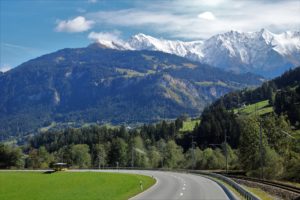 In the framework of the EU Green Deal, the European Commission announced the adoption of a new Strategy for Sustainable and Smart Mobility to help reducing transport-related greenhouse gas emissions by 90% by 2050.
In the framework of the EU Green Deal, the European Commission announced the adoption of a new Strategy for Sustainable and Smart Mobility to help reducing transport-related greenhouse gas emissions by 90% by 2050.
Euromontana welcomes such a Strategy, which objectives include better access to transport and better connectivity. In mountain areas, the lack of adequate collective transport solutions imposes social and territorial exclusion of some segments of rural inhabitants and limits the contribution of these territories to the greenhouse gas reduction objectives.
To make this new Strategy efficient, it is therefore crucial to leave no region behind. The European Commission must in particular consider the natural and geographical specificities of mountain areas to address the issue of car dependency in our territories, both for permanent residents and tourists and especially for cross-border commuters. To support the Commission in designing an inclusive Strategy, Euromontana contributed to its public consultation and shared recommendations, such as:
- Improving rural mobility through the adoption a Rural Mobility Package, which would detail measures for the development of sustainable transport in rural areas and addressing the specific challenges in remote, mountainous and sparsely populated territories.
- Encouraging rail transport, both for passengers and freight, as well as combined transportation and supporting the maintenance of small lines. The European Year of Rail in 2021 should be used as an opportunity to debate these issues in regions.
- Promoting innovation in the transport sector by paying attention to multimodality, supporting social innovation in areas where public transport is not viable and experimenting innovative solutions through the Smart Villages concept.
For more details on our recommendations, see “The EU Strategy for a Sustainable and Smart Mobility: bringing mountain territories into the transition”
18 September 2020









